Social research
Human Capital and Public Sector Reforms
Agriculture and Market Systems
Climate Change and Disaster Risk Management
Capacity Building and Business Development Support
Human Capital and Public Sector Reforms
USR Household Data Collection
USR Household Data Collection aims to collect socio economic household data in two districts in Somalia. This will be done using the USR systems will be deployed to collect socioeconomic information on households in accordance with the approved operations manual and data protection operational guidelines.
End-Line Evaluation Survey for Kenya Rangelands Ecosystem Services Productivity Programme (RANGER)
Programme (RANGER) Northern Rangelands Trust and funded by European Union INSIGHTS conducted an endline evaluation of the Kenya Rangelands Ecosystem Services Productivity (Ranger) program, evaluation commissioned by NRT and funded by the European Union, which addresses challenges in the Amaya Triangle region of Kenya, covering Laikipia, Baringo, Samburu, and Isiolo counties.
Monitoring, Evaluation, Research, and Learning (MERL) framework
INSIGHTS developed a comprehensive and user-friendly Monitoring, Evaluation, Research, and Learning (MERL) framework for SOS Children’s Villages International's Somaliland office. The primary objective of this assignment was to create a robust MERL framework and implementation plan that would serve as the foundation for performance evaluation.
Enhanced Awareness of Hazards, Disaster Information and Early Warning Systems and DRR Capacity Building of Local Level Structures
World Food Programme (WFP) Somalia Country Office together with Somali Disaster Management Agency (SODMA) and Ministries of Humanitarian Affairs and Disaster Management (MOHADM) is currently implementing a project, titled “Strengthening and linking federal and state early warning systems” with financial support from the World Bank.
Baseline Survey for Adaptive Agriculture and Rangeland Rehabilitation Project (A2R2)
The Adaptive Agriculture and Rangeland Rehabilitation Project (A2R2) in Somalia aims to enhance the climate resilience of poor rural households through sustainable natural resource management. This involves improving water resources and rangeland management, promoting eco-agriculture and climate-proof livelihoods, rehabilitating degraded forests and habitats, and strengthening governance systems for land degradation and biodiversity conservation.
USR Household Data Collection
USR Household Data Collection aims to collect socio economic household data in two districts in Somalia. This will be done using the USR systems will be deployed to collect socioeconomic information on households in accordance with the approved operations manual and data protection operational guidelines.
End-Line Evaluation Survey for Kenya Rangelands Ecosystem Services Productivity Programme (RANGER)
Programme (RANGER) Northern Rangelands Trust and funded by European Union INSIGHTS conducted an endline evaluation of the Kenya Rangelands Ecosystem Services Productivity (Ranger) program, evaluation commissioned by NRT and funded by the European Union, which addresses challenges in the Amaya Triangle region of Kenya, covering Laikipia, Baringo, Samburu, and Isiolo counties.
Monitoring, Evaluation, Research, and Learning (MERL) framework
INSIGHTS developed a comprehensive and user-friendly Monitoring, Evaluation, Research, and Learning (MERL) framework for SOS Children’s Villages International's Somaliland office. The primary objective of this assignment was to create a robust MERL framework and implementation plan that would serve as the foundation for performance evaluation.
Gender Analysis: Gender dynamics in Somalia,
INSIGHTS conducted a gender analysis for MEDAIR, funded by USAID's Bureau for Humanitarian Assistance (BHA), to understand the gender dynamics in Somalia, particularly within Medair’s operational areas. The analysis aimed to assess the implications of these dynamics at the project level, focusing on enhancing equal and equitable access to opportunities, resources, rights, protection, participation, and decision-making for women, men, boys, and girls.
Agriculture and Market Systems
Baseline Survey for Adaptive Agriculture and Rangeland Rehabilitation Project (A2R2)
The Adaptive Agriculture and Rangeland Rehabilitation Project (A2R2) in Somalia aims to enhance the climate resilience of poor rural households through sustainable natural resource management. This involves improving water resources and rangeland management, promoting eco-agriculture and climate-proof livelihoods, rehabilitating degraded forests and habitats, and strengthening governance systems for land degradation and biodiversity conservation.
End-Line Evaluation Survey for Kenya Rangelands Ecosystem Services Productivity Programme (RANGER)
Programme (RANGER) Northern Rangelands Trust and funded by European Union INSIGHTS conducted an endline evaluation of the Kenya Rangelands Ecosystem Services Productivity (Ranger) program, evaluation commissioned by NRT and funded by the European Union, which addresses challenges in the Amaya Triangle region of Kenya, covering Laikipia, Baringo, Samburu, and Isiolo counties.
Gender Analysis and Development of Gender Strategy
INSIGHTS conducted a gender analysis and developed a Gender Strategy for the USAID-funded "Nabadoon Reconciliation Activity" (Nabadoon) in Somalia. The Nabadoon Reconciliation Activity, a five-year program, aims to foster community reconciliation and resilience in Somalia, particularly in the districts of Barawe, Afgooye, Jowhar, and Warsheikh. The program is implemented by a consortium led by Catholic Relief Services (CRS), with Center for Peace and Democracy (CPD) and Somali Solidarity for Welfare and Change (SSWC) as implementing partners.
Climate Change and Disaster Risk Management
End-Line Evaluation Survey for Kenya Rangelands Ecosystem Services Productivity Programme (RANGER)
Programme (RANGER) Northern Rangelands Trust and funded by European Union INSIGHTS conducted an endline evaluation of the Kenya Rangelands Ecosystem Services Productivity (Ranger) program, evaluation commissioned by NRT and funded by the European Union, which addresses challenges in the Amaya Triangle region of Kenya, covering Laikipia, Baringo, Samburu, and Isiolo counties.
Monitoring, Evaluation, Research, and Learning (MERL) framework
INSIGHTS developed a comprehensive and user-friendly Monitoring, Evaluation, Research, and Learning (MERL) framework for SOS Children’s Villages International's Somaliland office. The primary objective of this assignment was to create a robust MERL framework and implementation plan that would serve as the foundation for performance evaluation.
Child Safety audits and Mapping
INSIGHTS conducted a series of safety audits, walks, and mapping approaches to identify safety and protection issues for children in IDP camps and host communities in the Middle Shabelle region. Commissioned by SOS Children's Villages International through funding from UNICEF, the assessment aimed to provide a comprehensive understanding of the protection risks and vulnerabilities faced by children in the Jowhar, Balcad, and Adale areas of Middle Shabelle.
Capacity Building and Business Development Support
End-Line Evaluation Survey for Kenya Rangelands Ecosystem Services Productivity Programme (RANGER)
Programme (RANGER) Northern Rangelands Trust and funded by European Union INSIGHTS conducted an endline evaluation of the Kenya Rangelands Ecosystem Services Productivity (Ranger) program, evaluation commissioned by NRT and funded by the European Union, which addresses challenges in the Amaya Triangle region of Kenya, covering Laikipia, Baringo, Samburu, and Isiolo counties.
Monitoring, Evaluation, Research, and Learning (MERL) framework
INSIGHTS developed a comprehensive and user-friendly Monitoring, Evaluation, Research, and Learning (MERL) framework for SOS Children’s Villages International's Somaliland office. The primary objective of this assignment was to create a robust MERL framework and implementation plan that would serve as the foundation for performance evaluation.
Child Safety audits and Mapping
INSIGHTS conducted a series of safety audits, walks, and mapping approaches to identify safety and protection issues for children in IDP camps and host communities in the Middle Shabelle region. Commissioned by SOS Children's Villages International through funding from UNICEF, the assessment aimed to provide a comprehensive understanding of the protection risks and vulnerabilities faced by children in the Jowhar, Balcad, and Adale areas of Middle Shabelle.
Business Development Services (BDS), mapping and profiling of individuals and private sector businesses engaged in fish retailing, and scoping exercises for fish retailer technology suppliers/providers /fabricators in Mogadishu and Kismayo
Inclusive Resilience in Somalia (IRiS) is a five-year project (2022–2027) funded by USAID and the UK's FCDO, aimed at accelerating economic development for marginalized groups in Somalia. The project enhances resilience through rural and urban livelihood diversification and inclusive economic market systems. IRiS focuses on the agriculture, livestock, and fisheries sectors, addressing key shocks like climate variability, conflict, and economic instability. The project targets integration of the urban poor and IDPs into urban economies, promotion of private sector investments, policy and regulatory strengthening, and expanding financial services for marginalized populations.
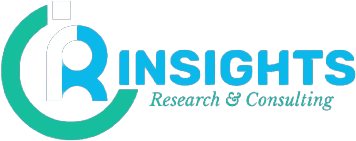
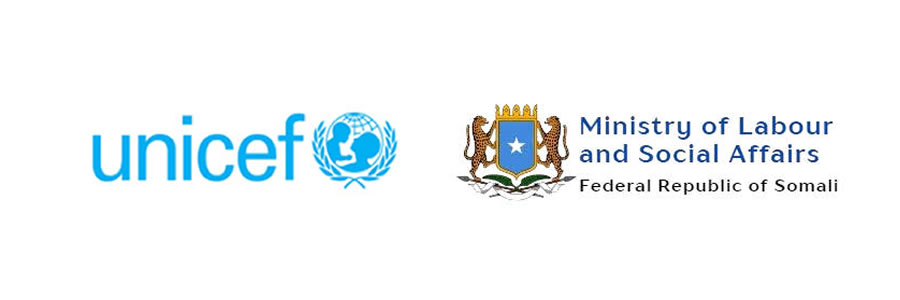
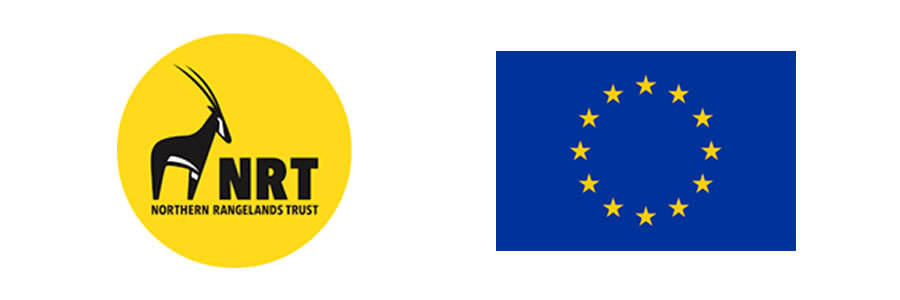

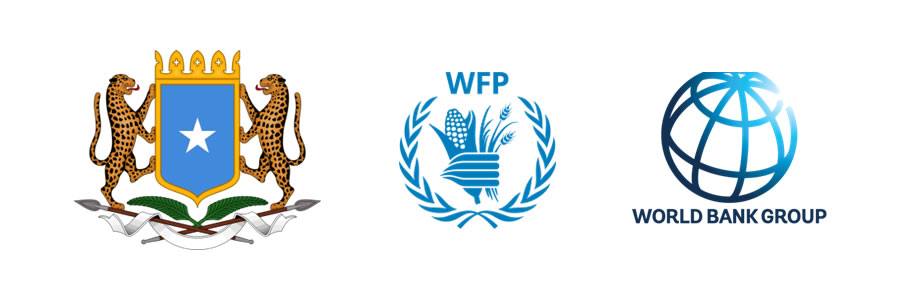
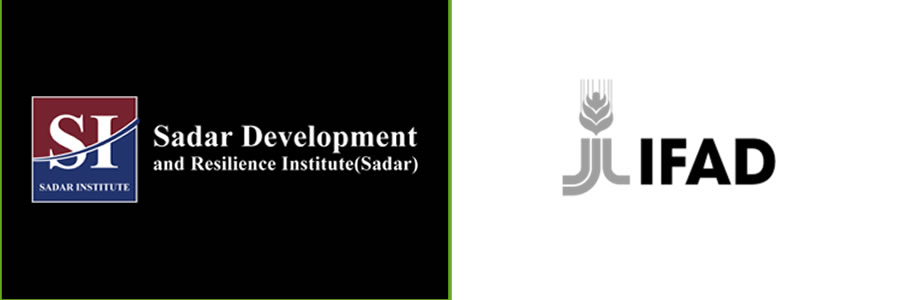
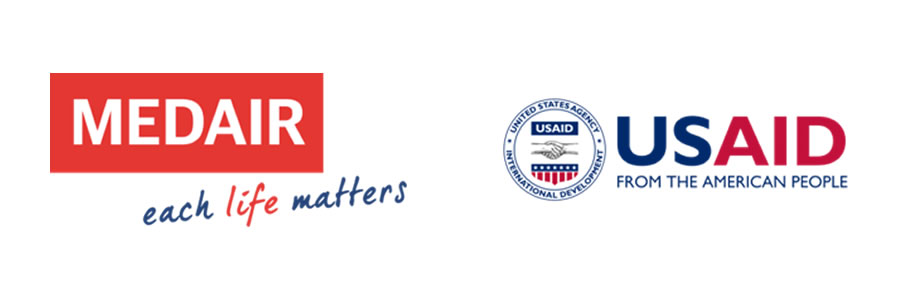
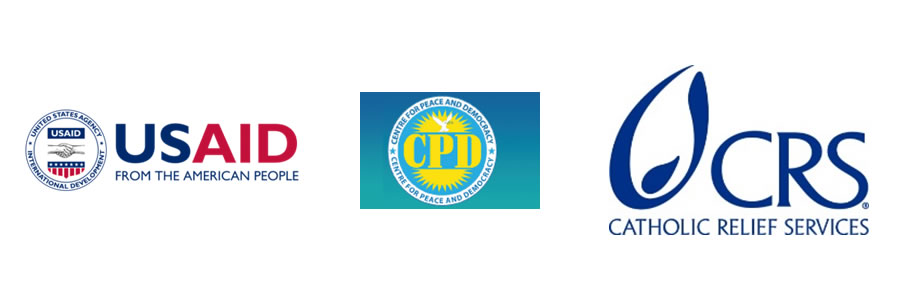
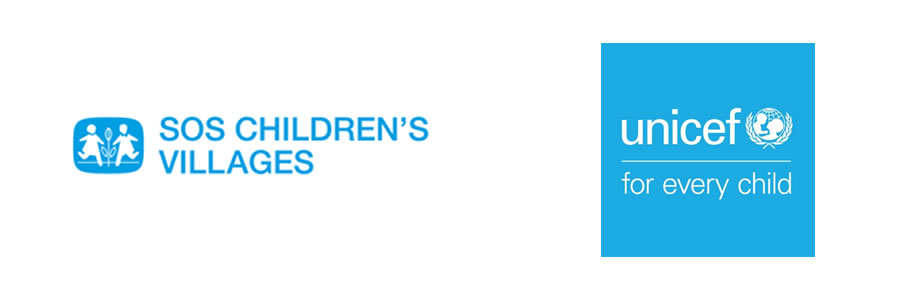
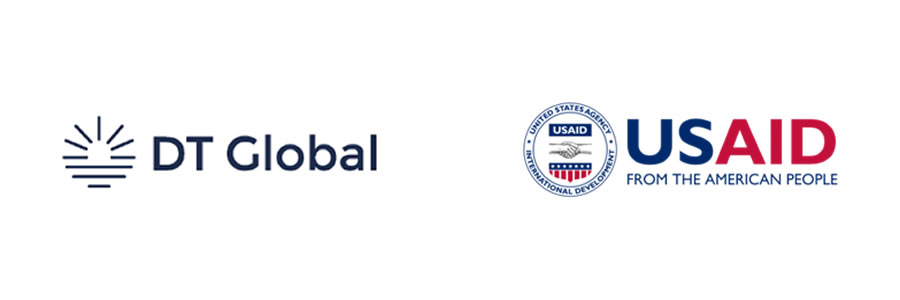
Social research
Enhanced Awareness of Hazards, Disaster Information and Early Warning Systems and DRR Capacity Building of Local Level Structures
World Food Programme (WFP) Somalia Country Office together with Somali Disaster Management Agency (SODMA) and Ministries of Humanitarian Affairs and Disaster Management (MOHADM) is currently implementing a project, titled “Strengthening and linking federal and state early warning systems” with financial support from the World Bank.
Show more...
The project objective is to strengthen community-oriented disaster early warning systems and capacities in Hirshabelle and Southwest States. Through this project, the proposed interventions will pilot disaster early warning systems and approaches, while linking them to national disaster risk management, with the goal of improving national and community disaster preparedness and response capacities.
This project is strongly aligned to the Somalia Crisis Recovery Project (SCRP’s) development objectives which is to support the recovery of livelihoods and infrastructure in flood and drought affected areas and strengthen capacity for disaster preparedness nationwide. Taken with the other components of the SCRP, this project will support an integrated flood-drought response and preparedness regime to mitigate against climatic shocks.
INSIGHTS is supporting efforts to enhance disaster preparedness and response in Hirshabelle and Southwest States, building resilience to floods and droughts. Key objectives include raising community awareness, strengthening Village Disaster Management Committees (VDMCs), and establishing early warning systems (EWS). The initiative also fosters linkages between community and national disaster management structures while documenting best practices and lessons learned.
Baseline Survey for Adaptive Agriculture and Rangeland Rehabilitation Project (A2R2)
The Adaptive Agriculture and Rangeland Rehabilitation Project (A2R2) in Somalia aims to enhance the climate resilience of poor rural households through sustainable natural resource management. This involves improving water resources and rangeland management, promoting eco-agriculture and climate-proof livelihoods, rehabilitating degraded forests and habitats, and strengthening governance systems for land degradation and biodiversity conservation.
Show more...
The project also seeks to enhance food and nutrition security, income generation, and adaptive capacities of vulnerable smallholder households.INSIGHTS conducting baseline survey is to establish pre-project conditions against which changes among the target population can be measured. The survey will help to set baseline and track project outcomes and impacts. It will collect both quantitative and qualitative data to measure key indicators such as income, food and nutrition security, biodiversity conservation, and adaptive capacities.
USR Household Data Collection
USR Household Data Collection aims to collect socio economic household data in two districts in Somalia. This will be done using the USR systems will be deployed to collect socioeconomic information on households in accordance with the approved operations manual and data protection operational guidelines.
Show more...
The USR collects information on households that can be used to estimate the welfare of each household. The information is collected in the “Common Registration Form” (CRF), a comprehensive questionnaire that registers socio-economic household data.
INSIGHTS, a third-party research and data collection agency, has developed a methodology and a detailed plan to collect the household socioeconomic data for this initiative through a socio-economic household survey using the standard common registration form (CRF)
End-Line Evaluation Survey for Kenya Rangelands Ecosystem Services Productivity Programme (RANGER)
Programme (RANGER) Northern Rangelands Trust and funded by European Union INSIGHTS conducted an endline evaluation of the Kenya Rangelands Ecosystem Services Productivity (Ranger) program, evaluation commissioned by NRT and funded by the European Union, which addresses challenges in the Amaya Triangle region of Kenya, covering Laikipia, Baringo, Samburu, and Isiolo counties.
Show more...
The program aimed to build resilience, sustainability, and peace by supporting community conservancies, promoting climate-resilient livelihoods, and improving governance. A consortium of ten partners, including World Agroforestry (ICRAF), Jomo Kenyatta University of Agriculture and Technology (JKUAT), and Entrepreneurs for Impact (E4I), led these efforts. Despite successes in improving local communities and conserving natural resources, the region continues to face challenges, necessitating the endline evaluation.
The evaluation assessed the program’s performance using the OECD DAC evaluation criteria: relevance, coherence, effectiveness, efficiency, impact, and sustainability. It aimed to determine the impact of key program indicators, evaluate the program’s alignment with conservancy needs, and review its implementation efficiency. Additionally, the evaluation included a human rights audit, identified areas for future learning, and provided strategic recommendations for stakeholders to improve the program’s outcomes. The RangER program has worked to improve livelihoods, enhance ecosystem service productivity, support climate-smart natural resource management, and foster peace and security, all of which contribute to the resilience of local communities, ecosystems, and wildlife in the face of climate change.
Monitoring, Evaluation, Research, and Learning (MERL) framework
INSIGHTS developed a comprehensive and user-friendly Monitoring, Evaluation, Research, and Learning (MERL) framework for SOS Children’s Villages International’s Somaliland office. The primary objective of this assignment was to create a robust MERL framework and implementation plan that would serve as the foundation for performance evaluation.
Show more...
The framework aimed to build the capacity of SOS International staff and their implementing partners, enabling them to conduct activities in line with MERL guidelines and establish baseline benchmarks. It was designed to better account for the project’s achievements, evaluate its impact on beneficiaries, and ensure that it contributes to the desired outcomes.
The MERL framework was crafted to provide a dynamic and participatory monitoring and evaluation system, adaptable to innovations at various stages of project implementation. It supports the project management team and decision-makers by offering tools and methodologies to assess the overall progress, effects, and impact of activities in the short, medium, and long term. Ultimately, the framework enhances the ability to evaluate and improve project performance, ensuring that activities are effectively contributing to achieving the expected results.
Gender Analysis: Gender dynamics in Somalia,
INSIGHTS conducted a gender analysis for MEDAIR, funded by USAID’s Bureau for Humanitarian Assistance (BHA), to understand the gender dynamics in Somalia, particularly within Medair’s operational areas. The analysis aimed to assess the implications of these dynamics at the project level, focusing on enhancing equal and equitable access to opportunities, resources, rights, protection, participation, and decision-making for women, men, boys, and girls.
Show more...
By identifying local and program-related gender constraints and opportunities, the analysis informed the design and adaptation of Medair’s programs to promote social justice, inclusiveness, and gender equality. Additionally, the analysis evaluated how Medair Somalia’s interventions have contributed to positive changes in the lives of women, men, boys, and girls, fostering a more just and fair society.
The gender analysis examined differences in roles, norms, and power dynamics between women, men, boys, and girls, including their access to and control over resources. It also explored how these gendered differences affect their needs, constraints, and opportunities. Based on these findings, the analysis provided recommendations for program adjustments to ensure more inclusive and equitable outcomes in Medair’s areas of operation. Medair works across the Banadir, Middle Shabelle, Lower Shabelle, and Lower Juba regions, offering integrated health, nutrition, and WASH programs through Primary Health Care facilities and community-based interventions. Ultimately, the gender analysis supported Medair’s efforts to address gender inequality and contribute to sustainable development and inclusive peace in Somalia.
Conducting research on localization progress for humanitarian coordination and CP AoR.
INSIGHTS conducted an in-depth research study on the progress, successes, challenges, and opportunities of localization within humanitarian coordination in Somalia, focusing specifically on the Child Protection Area of Responsibility (CP AoR). This research sought to understand the broader implications of localization on improving the effectiveness of humanitarian responses, particularly in how it impacts the protection of children during emergencies.
Show more...
By examining the ways in which localization has influenced coordination mechanisms, decision-making, and the delivery of services, the study aimed to shed light on the potential of localized responses to enhance both the immediate and long-term protection of vulnerable populations, especially children. The research also aimed to assess how the localization process has been integrated into the CP AoR, uncovering both successes and barriers that could be addressed to better safeguard children’s rights in crisis situations.
Furthermore, the research sought to contribute to the ongoing dialogue around transformative humanitarian action by emphasizing the importance of contextually appropriate, locally led response strategies that prioritize the protection and well-being of vulnerable communities. The findings were intended to inform the development of an action plan that would build on the progress of localization, identifying key areas for improvement and potential opportunities for strengthening the involvement of local actors in humanitarian coordination. This action plan would aim to foster more inclusive, adaptive, and sustainable approaches that better meet the needs of crisis-affected populations in Somalia. Ultimately, the research underscored the necessity of ensuring that humanitarian responses are not only responsive but also resilient, empowering local stakeholders to take ownership of their own recovery and protection efforts, particularly in terms of child protection.
Review And updating the Somalia Localization Action Plan and Disseminating It Through the Localization Working Group Members
INSIGHTS, commissioned by Save the Children International, conducted a review and update of the Somalia Localization Action Plan in close collaboration with the Localization Working Group (LWG) and the Somali NGO Consortium (SNC). The consultancy aimed to assess the effectiveness of the current action plan, identify gaps, and align it with the evolving needs of the humanitarian sector in Somalia.
Show more...
This process involved consultations with key stakeholders, including local and international actors, to understand challenges and successes, followed by updating the plan to improve local participation, coordination, and the capacity of local organizations. The revised action plan also aimed to address the barriers faced by local humanitarian actors, such as limited funding and capacity gaps.
The updated action plan was disseminated through the Localization Working Group, ensuring that all relevant stakeholders were informed and engaged in its implementation. INSIGHTS also developed action plans to increase funding to local civil society organizations (CSOs) and enhance the role of Localization Working Groups. The goal was to create an enabling environment for local actors to take a more central role in humanitarian action, ensuring that the localization agenda is effectively implemented and that resources are allocated to strengthen local capacities and improve outcomes in the Somali context.
Gender and Disability Barrier Assessment (GEDSI)
INSIGHTS was commissioned by COOPI through the SomRep Program to conduct a comprehensive Gender and Disability Barrier Assessment (GEDSI) in the Dollow and El Afweyn districts of Somalia/Somaliland, using a Political, Economic, Social, Technological, and Legal Environment (PESTLE) approach. This assessment adopted a participatory and rights-based methodology, engaging women, girls, persons with disabilities, and relevant stakeholders.
Show more...
The goal was to identify and analyze the barriers these groups face in accessing essential services and opportunities across sectors such as education, healthcare, employment, transportation, and social protection.
Given the interconnections between gender and disability, the assessment emphasized the need to consider both dimensions to understand the specific challenges faced by women and men with disabilities. It also explored how gender norms and expectations impact the lives of people with disabilities, aiming to uncover the unique barriers they face and how these intersect with gender.
The GEDSI assessment aimed to inform the development of more effective policies and programs that promote inclusion, equity, and accessibility for all individuals, regardless of gender or disability status. The findings led to actionable recommendations to overcome barriers, reduce vulnerabilities, and strengthen enablers. Ultimately, the assessment contributes to the achievement of SDGs, particularly SDG 5 (Gender Equality) and SDG 10 (Reduced Inequality), while identifying opportunities for policy reform and programmatic action to enhance inclusive development, equal opportunities, and social justice in Somalia/Somaliland.
Gender Analysis and Development of Gender Strategy
INSIGHTS conducted a gender analysis and developed a Gender Strategy for the USAID-funded “Nabadoon Reconciliation Activity” (Nabadoon) in Somalia. The Nabadoon Reconciliation Activity, a five-year program, aims to foster community reconciliation and resilience in Somalia, particularly in the districts of Barawe, Afgooye, Jowhar, and Warsheikh. The program is implemented by a consortium led by Catholic Relief Services (CRS), with Center for Peace and Democracy (CPD) and Somali Solidarity for Welfare and Change (SSWC) as implementing partners.
Show more...
Commissioned by CPD, the gender analysis aimed to support the integration of gender throughout the Nabadoon project cycle, addressing gender-based power dynamics, harmful masculine norms, and promoting the inclusion, participation, and empowerment of women, youth (18-29 years, both male and female), and persons with disabilities.
The gender analysis filled knowledge gaps identified in the baseline assessment and informed the design and implementation of gender-responsive and transformative activities. It aimed to overcome district-specific participation constraints, such as meeting times, location distances, conflict sensitivity, and adherence to the “Do No Harm” strategy. Furthermore, the analysis sought to identify how Nabadoon activities were not causing unintended harm to the target groups while promoting their active participation in conflict resolution and peacebuilding. The gender analysis also assessed the integration of gender issues in peacebuilding, conflict resolution, and natural resource management, providing recommendations for better integration of gender considerations to achieve more equitable outcomes.
The second component of the analysis was to develop a Gender Strategy for the Nabadoon Activity. Effective mainstreaming of gender equality and social inclusion is crucial for natural resource management and peacebuilding initiatives in Somalia, and the Gender Strategy is an essential cross-cutting component of the Nabadoon Project. The strategy provides a framework to guide the project and its consortium partners, ensuring gender considerations are integrated into all aspects of the program. The primary target audience for the strategy includes the consortium partners and Nabadoon communities/participants who will be responsible for its implementation. Secondary audiences include organizations and individuals working to empower marginalized groups, particularly women, in Somalia. The strategy aims to promote inclusive participation, address gender inequalities, and foster a more equitable and sustainable impact for all involved.
Child Safety audits and Mapping
INSIGHTS conducted a series of safety audits, walks, and mapping approaches to identify safety and protection issues for children in IDP camps and host communities in the Middle Shabelle region. Commissioned by SOS Children’s Villages International through funding from UNICEF, the assessment aimed to provide a comprehensive understanding of the protection risks and vulnerabilities faced by children in the Jowhar, Balcad, and Adale areas of Middle Shabelle.
Show more...
The safety audits were designed to identify specific safety concerns, map out areas with heightened risks, and assess the availability and accessibility of child protection services, ensuring that all key vulnerabilities were considered. This participatory approach included consultations with children and adolescents, whose voices and experiences were central to the process. By actively involving children in the assessment, they were empowered to contribute to decision-making and problem-solving efforts focused on improving their safety and protection.
The findings of the assessment are set to inform the development of a comprehensive protection strategy, which will specifically target the identified risks and vulnerabilities. This strategy will address the gaps in child protection services and improve coordination to ensure that children’s rights to safety, protection, and well-being are upheld in these areas. By focusing on the specific needs and challenges of children in the Jowhar, Balcad, and Adale regions, the goal is to mitigate risks and improve both immediate and long-term humanitarian outcomes. The insights gathered from this assessment will not only help enhance the protection mechanisms available to children but also contribute to improving the overall humanitarian situation for children in Somalia, particularly in IDP camps and vulnerable communities.
Final evaluation of SOM – Economic and Social Empowerment of Youth in Somalia (EASE-Y in Somalia).
The EASE-Y project, funded by the Germany Federal Ministry for Economic Cooperation and Development (BMZ) and implemented by Save the Children International (SCI), aimed to empower youth in Somalia through a multi-faceted approach. Targeting 5,000 direct beneficiaries, with equal representation of males and females, the project ensured gender parity and inclusivity. Additionally, it indirectly benefited approximately 30,000 individuals, extending its impact to the broader community.
Show more...
Through a comprehensive framework of life skills training, vocational skills development, entrepreneurship support, and youth leadership initiatives, the EASE-Y project sought to equip young people with the skills and knowledge needed to thrive in the workforce while fostering social and political inclusion.
INSIGHTS conducted the endline evaluation of the EASE-Y project, which focused on its implementation in Mogadishu, Baidoa, and Garowe. The evaluation provided a comprehensive assessment of the project’s relevance, effectiveness, efficiency, impact, sustainability, coherence, and inclusiveness, aiming to determine the extent to which the project achieved its objectives and delivered meaningful outcomes for its target population. Specific objectives included evaluating the project’s performance against baseline data, collecting qualitative and quantitative data on program impact—particularly in livelihoods and child protection—assessing the quality and accountability of the intervention, documenting both intended and unintended outcomes, and recommending strategic improvements. The evaluation also provided valuable insights to guide future decision-making, resource allocation, and scaling-up of similar initiatives. The findings highlighted the project’s success in empowering youth and contributing to community development, while also identifying areas for improvement to enhance impact and sustainability in future projects.
Mapping and Assessing Gaps In Existing Formal and Informal Early Warning Systems
INSIGHTS conducted a comprehensive mapping and assessment of existing formal and informal The primary objective of this exercise was to evaluate the strengths, weaknesses, and gaps in current early warning mechanisms to enhance their accessibility, effectiveness, and inclusivity. The study focused on understanding how weather and climate information services (WCIS) are utilized and identifying opportunities to improve their responsiveness to climatic shocks such as droughts, floods, and other extreme weather events.
Show more...
A key aspect of the assessment was addressing the heightened vulnerability of marginalized groups, including Persons with Disabilities (PwDs), the elderly, socially marginalized populations, and those in hard-to-reach (H2R) areas. These groups face significant barriers in accessing vital resources, information, and support systems, which amplifies their risks during climatic shocks. Poor or limited access to WCIS further exacerbates their challenges, underscoring the need for inclusive and community-specific solutions.
The mapping exercise provided actionable recommendations aimed at improving early warning systems to better prepare vulnerable communities for climatic shocks. These recommendations will guide the design of targeted interventions to enhance preparedness, resilience, and equitable access to early warning services, ensuring that no group is left behind in responding to climate-related risks.early warning systems in Bandarbeyla, Burao, and Beledweyne districts in Somalia.
Conflict Protection Assessment
INSIGHTS conducted a Conflict Protection Assessment in Kismayo and Dollow, Somalia, to address the urgent need for comprehensive protection analysis in these regions. The assessment systematically mapped protection risks, vulnerabilities, and threats faced by various demographic groups, including women, men, children, the elderly, and people with disabilities. Using a mixed-method approach, the study combined qualitative and quantitative methodologies to gather data, focusing on identifying existing protection mechanisms, assessing access to essential services, and understanding barriers to their utilization. The findings aim to guide the design and implementation of targeted protection interventions to safeguard the rights and safety of conflict-affected populations.
Show more...
The assessment included a thorough review of relevant documentation, such as reports, policies, and literature on protection issues in Somalia. Key informant interviews were conducted with stakeholders, including local authorities, community leaders, humanitarian actors, and vulnerable groups. Questionnaire surveys supplemented these insights with quantitative data, ensuring a robust and holistic understanding of the issues. Data collected was disaggregated by age, gender, and displacement status to ensure nuanced and actionable recommendations that address the specific needs of affected populations.
Endline Evaluation of the Somaliland Terminating Oppression of women and girls Programme II (STOP II), Somaliland
Funded by the European Union, Health Poverty Action (HPA) implemented the Somaliland Terminating Oppression of Women and Girls Programme II (STOP II) to address the urgent challenges of gender-based violence (GBV) and female genital mutilation (FGM) in Somaliland. Running from January 2021 to September 2023, the project focused on the Togdheer and Sool regions, specifically targeting the districts of Burao and Ainabo.
Show more...
STOP II sought to raise community awareness about GBV and FGM, improve access to multi-sectoral response services, and advocate for necessary legal and policy reforms. Building on the successes and lessons learned from its predecessor, STOP I, which focused on increasing service access and raising awareness in pilot areas, STOP II expanded its efforts to reach more communities while deepening its impact.
INSIGHTS conducted the endline evaluation of the STOP II project to assess its effectiveness in achieving its overall and specific objectives and to evaluate the impact of its outcomes on the targeted communities. The evaluation examined the extent to which the project raised awareness, improved service delivery, and influenced policy and legal frameworks related to GBV and FGM. It also analyzed the project’s contributions to enhancing the well-being of women and girls in the region. The findings provided valuable insights and practical recommendations to inform future programming, ensuring sustained progress toward achieving gender equality and addressing the critical challenges faced by women and girls in Somaliland.
Endline Study of Existing Child Protection Systems And Localization In Mogadishu, Somalia
INSIGHTS conducted an endline evaluation of Save the Children International’s (SCI) “Som Localization Practice in Somalia” project, which aimed to strengthen child protection systems by empowering local civil society organizations (CSOs). Since 1951, SCI has worked in Somalia to safeguard children’s rights, focusing under its 2022–2024 Country Strategic Plan on enhancing local actors’ capacities to lead child protection efforts. This project sought to establish a sustainable, locally-led child protection system through capacity building, resource mobilization, and leadership development.
Show more...
Implemented in South-Central Somalia, the project equipped CSOs with the skills, resources, and leadership needed to address child protection issues and promoted local ownership through coordination and advocacy efforts. Activities included Organizational Capacity Assessments (OCAs), training, and fostering CSO leadership in coordination mechanisms.
The endline evaluation assessed the project’s success in achieving its outcomes, strengthening child protection systems, and advancing localization efforts. The findings aim to guide SCI and partners in scaling effective practices and addressing remaining challenges to build a resilient, localized child protection system.
Comprehensive Gender Assessment
INSIGHTS conducted a comprehensive Gender Analysis consultancy to support Action Against Hunger (ACF) Somalia in developing gender-transformative programming across its projects and sectors. The primary objective of the consultancy was to analyze gender dynamics and provide actionable recommendations to enhance the integration of gender-transformative approaches across ACF’s programs in health, nutrition, WASH, food security, and livelihoods. The analysis focused on five key domains: laws, policies, and institutional practices influencing decision-making; cultural norms and beliefs; gender roles, responsibilities, and time use; access to and control over assets and resources; and patterns of power and decision-making.In addition to addressing these domains, the study examined best practices for integrating gender considerations into relevant activities.
Show more...
It identified current opportunities and proposed strategies and recommendations to address gaps, enabling ACF Somalia to adopt gender-transformative approaches and develop standalone gender and protection programs.
The gender analysis was conducted in key regions of Somalia, including Banadir, Bay, Bakool, Lower Juba, Sool, and Nugaal, with final locations determined in consultation with ACF and the consultant. The findings and recommendations are expected to guide ACF Somalia in enhancing program effectiveness and sustainability while addressing gender inequalities and fostering inclusive development.
Baseline Assessment of IFAD’s Response Initiative for Somalia Emergencies (RISE Project)[Nov 2023 – Jan 2024]
The project goal is to minimize the impacts of the Ukraine war on the livelihoods, resilience and food security of IFAD’s target group. As well the project development objective is to maintain and improve climate-smart agricultural productive capacity, post-harvest, and resilient water infrastructure access for small-scale producers affected by the Ukraine crisis by contributing to conducive agro-ecological and market conditions, protecting productive livelihoods of beneficiaries
Show more...
and tapping new market opportunities to reduce small-scale producers’ vulnerability, enhance their resilience to the shocks from the Ukraine crisis. INSIGHTS conducted a baseline survey in all the target districts in Somalia.
Business Development Services (BDS), mapping and profiling of individuals and private sector businesses engaged in fish retailing, and scoping exercises for fish retailer technology suppliers/providers /fabricators in Mogadishu and Kismayo
Inclusive Resilience in Somalia (IRiS) is a five-year project (2022–2027) funded by USAID and the UK’s FCDO, aimed at accelerating economic development for marginalized groups in Somalia. The project enhances resilience through rural and urban livelihood diversification and inclusive economic market systems. IRiS focuses on the agriculture, livestock, and fisheries sectors, addressing key shocks like climate variability, conflict, and economic instability. The project targets integration of the urban poor and IDPs into urban economies, promotion of private sector investments, policy and regulatory strengthening, and expanding financial services for marginalized populations.
Show more...
INSIGHTS was tasked with mapping and profiling individuals and businesses engaged in fish retailing and the fabrication/sales of fish retail facilities in Mogadishu and Kismayo. INSIGHTS supported collecting comprehensive data on these businesses, facilitating training for women and youth on record keeping and business management, and linking these market actors with financial institutions and technology providers to support the establishment of 400 standard fish retail outlets.
National Comprehensive Child Protection Rapid Assessment Somalia/ Somaliland
INSIGHTS conducted a comprehensive child protection rapid assessment in Somalia, commissioned by SOS Somalia, UNICEF, and the Child Protection Area of Responsibility (CPAoR), to address critical gaps in understanding and responding to child protection risks and needs. The assessment explored the scale and nature of risks faced by children, particularly in contexts of conflict, displacement, and socio-economic challenges.
Show more...
It analyzed the effectiveness of existing child protection systems, identified unmet needs, and assessed the capacities of local communities, national systems, and international actors to address these vulnerabilities. Key areas of focus included understanding the drivers of child protection concerns, documenting the perspectives of children and caregivers, and mapping community-based protection structures.
Annual Outcome Survey on USAID’s Inclusive Economic Growth Program (IRiS)
Inclusive Resilience in Somalia (IRiS) is a five-year project (2022–2027) funded by USAID and the UK’s FCDO, aimed at accelerating economic development for marginalized groups in Somalia. The project enhances resilience through rural and urban livelihood diversification and inclusive economic market systems. IRiS focuses on the agriculture, livestock, and fisheries sectors, addressing key shocks like climate variability, conflict, and economic instability. The project targets integration of the urban poor and IDPs into urban economies, promotion of private sector investments, policy and regulatory strengthening, and expanding financial services for marginalized populations.
Show more...
INSIGHTS conducted annual outcome surveys via household and business surveys in six targeted districts: Bay (Baidoa), Lower Shabelle (Afgoi, Barawe), Middle Shabelle (Balcad, Jowhar), Banadir (Mogadishu), and Lower Juba (Kismayu). The objective of this activity is to gather detailed information on the status of various performance indicators, providing insights that help the program team, donors, and partners understand the project’s impact and progress. The first survey, scheduled for July 2024, aligns with the program’s Activity Monitoring, Evaluation, and Learning Plan (AMELP), supporting data-driven decision-making and continuous improvement of resilience-building efforts in Somalia.
Endline Evaluation & /Impact evaluation of Response Initiative for Somalia Emergencies (RISE Project)
The RISE project’s goal is to minimize the impacts of the Ukraine war on the livelihoods, resilience and food security of IFAD’s target group. As well the project development objective is to maintain and improve climate-smart agricultural productive capacity, post-harvest, and resilient water infrastructure access for small-scale producers affected by the Ukraine crisis by contributing to conducive agro-ecological and market conditions, protecting productive livelihoods of beneficiaries and tapping new market opportunities to reduce small-scale producers’ vulnerability, enhance their resilience to the shocks from the Ukraine crisis. In relation to targeting, the project interventions will target rural smallholder farmers, pastoralists, and agro-pastoralist communities.
Show more...
INSIDHTS conducted an End-line and impact assessment aimed to cover all key components and the sub-components of the project implemented in the project target districts and to assess the project intervention, activities and inputs provided. The End line Survey and Project Impact Evaluation focused on impact, outcome and inputs indicators by a collection of verified information through systematic data collection from beneficiaries and the project stakeholders for a set of evaluation questions (IFAD impact assessment standard questionnaire and project related questionnaire) in conjunction with the above-mentioned impact domains
Development of Community-Level Disaster Risk Management Guidelines in Hirshabelle and Southwest States in Somalia
World Food Programme (WFP) Somalia Country Office together with Somali Disaster Management Agency (SODMA) and Ministries of Humanitarian Affairs and Disaster Management (MOHADM) is currently implementing a project, titled “Strengthening and linking federal and state early warning systems” with financial support from the World Bank. The project objective is to strengthen community-oriented disaster early warning systems and capacities in Hirshabelle and Southwest States.
Show more...
Through this project, the proposed interventions will pilot disaster early warning systems and approaches, while linking them to national disaster risk management, with the goal of improving national and community disaster preparedness and response capacities.
This project is strongly aligned to the Somalia Crisis Recovery Project (SCRP’s) development objectives which is to support the recovery of livelihoods and infrastructure in flood and drought affected areas and strengthen capacity for disaster preparedness nationwide. Taken with the other components of the SCRP, this project will support an integrated flood-drought response and preparedness regime to mitigate against climatic shocks.
INSIGHTS is supporting the development of 4 key documents namely Development of community-level disaster risk management guidelines, revise contingency plans, and develop regulatory framework and standard operating procedures for early warning and response efforts on floods and droughts.